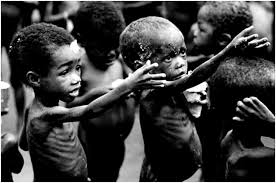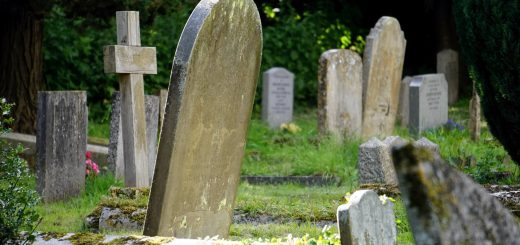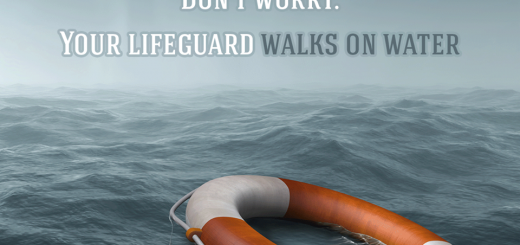Always remember there’s a back story…..
In the days when the judges ruled, there was a famine in the land. So a man from Bethlehem in Judah, together with his wife and two sons, went to live for a while in the country of Moab. The man’s name was Elimelek, his wife’s name was Naomi, and the names of his two sons were Mahlon and Kilion. They were Ephrathites from Bethlehem, Judah. And they went to Moab and lived there. Ruth 1:1-2
 In the opening verses of the Book of Ruth, we are introduced to Naomi and her family and given a brief glimpse of their back story. Beginnings and endings are always difficult. Knowing where to start a story and where to finish it is always hard. At the moment, I am particularly intolerant of endings. I keep throwing novels across the floor – either because all the ends are tied up too neatly, or because too much is left in the air. There is never a good place to stop, you see. An author is having to decide to cut off the narrative at a certain point, but the characters’ stories are far from over. That frustration at needing to know what happens next is what drives Hazel Grace Lancaster in ‘Fault in our Stars’ to travel all the way to Amsterdam to visit the author of her favourite book ‘An Imperial Affliction’………with an unsatisfactory result. And when friends read my first novel ‘Secrets Such As These’, I received a barrage of questions and suggestions as to how the story would and could continue. I had not planned a sequel but felt obliged to promise one (which will be started very shortly!).
In the opening verses of the Book of Ruth, we are introduced to Naomi and her family and given a brief glimpse of their back story. Beginnings and endings are always difficult. Knowing where to start a story and where to finish it is always hard. At the moment, I am particularly intolerant of endings. I keep throwing novels across the floor – either because all the ends are tied up too neatly, or because too much is left in the air. There is never a good place to stop, you see. An author is having to decide to cut off the narrative at a certain point, but the characters’ stories are far from over. That frustration at needing to know what happens next is what drives Hazel Grace Lancaster in ‘Fault in our Stars’ to travel all the way to Amsterdam to visit the author of her favourite book ‘An Imperial Affliction’………with an unsatisfactory result. And when friends read my first novel ‘Secrets Such As These’, I received a barrage of questions and suggestions as to how the story would and could continue. I had not planned a sequel but felt obliged to promise one (which will be started very shortly!).
Beginnings can be just as frustrating. Because wherever a narrative starts, there has been an important back story that has moulded the characters into who they are today. Take Elimelek and Naomi and their two sons for example. We are introduced to them in two short verses that paint a picture of their context and back story that we can easily overlook. These were the days when the judges ruled…….remember how that looked from last month? Remember how low the people of Israel had sunk? The immorality, the idolatry, the violence, the dishonesty, the compromise……what made the chosen people of God different from the people around them? Very, very little, if anything at all. We can only begin to imagine the insecurity and danger and temptations and confusion faced by families at that time.
 And in these days, there was a famine. Again, how can we begin to imagine how it feels to live in a time of famine? To hear your children crying in hunger and not be able to feed them? To feel helpless and hopeless? (as an aside, I was touched by this picture in the new Traidcraft video which is well worth watching – Fair Necessities – Bilkis, a loving mother in Bangladesh, having to listen to her beloved child Sadia crying for food and having to send her out begging to the neighbours’ homes at the age of 3). Some of us can remember the first time images from the famine in Ethiopia in 1983-1985 hit our TV screens and our hearts – and the massive response these images provoked channeled through the incredible work of Bob Geldof and Band Aid………
And in these days, there was a famine. Again, how can we begin to imagine how it feels to live in a time of famine? To hear your children crying in hunger and not be able to feed them? To feel helpless and hopeless? (as an aside, I was touched by this picture in the new Traidcraft video which is well worth watching – Fair Necessities – Bilkis, a loving mother in Bangladesh, having to listen to her beloved child Sadia crying for food and having to send her out begging to the neighbours’ homes at the age of 3). Some of us can remember the first time images from the famine in Ethiopia in 1983-1985 hit our TV screens and our hearts – and the massive response these images provoked channeled through the incredible work of Bob Geldof and Band Aid………
This is the context for Elimelek and his family. This is what forces them to leave the land that God gave them to settle in and travel to the unknown potential dangers of a foreign land. This is the suffering and pain and hunger and desperation that they carry with them in their hearts. This is what forces them to leave behind their home and family, their community, their roots, their tribe, their beloved home town (Bethlehem – a pretty special place going forward! – also known as Ephraph or Ephratah). No one ups and leaves all that on a whim.
Even now. There is much talk in this election about immigration. Let’s remember that there is always a real back story – a story of family and homes and suffering and hunger and poverty and threat and violence – every individual has an individual back story that led them to where they are now. No one is simply a number or a statistic.
There may be more food but there is no security in this new life for Elimelek and his family. They don’t know how long they will be staying – ‘they went to live for a while…’. Moab is full of foreigners who do not worship the one true God. Their customs and traditions and language are all new and strange. How will the family settle in? How will they have to adapt? How will they be able to make a home and life for themselves?
So how is this relevant to us today? Well, Andy will address the issue of economic migration tomorrow, because tough issues are what he does best. And I would remind us that everyone has a back story. I wrote a set of assemblies a while back entitled ‘The Stories Within’ based on the idea that we are so quick to judge people we meet on external appearances and what we judge them to be now, without having any concept of their back story. This is the prayer used at the end of each of these assemblies –
Our Lord,
We thank you for Joan and older people like her. (and ‘We thank you for Anna and disabled people like her.’ and ‘We thank you for Thabo and people in our country like him.’ and……insert everyone you meet today!)So often, we see the outside and know nothing of the story within.
We know nothing of the exciting events and difficult times that have made them who they are today.Help us to be tolerant.
Help us to be interested.
Help us to open our minds.
And help us to be amazed.
Amen
This could be our prayer today.
This is what made our recent project at work so exciting. Elderly people from a local lunch club able to tell their fascinating stories and have them transformed into innovative art work and displayed for all to see in our store. Everyone is so much more than what you can see from the outside. What an incredible wealth of experiences, humour, resilience and adventures!
And finally, how is all this relevant to today, Good Friday? I’ll let Shane Claiborne explain (he posted this on Facebook yesterday) –
One of the most powerful Good Friday services we’ve ever had was a few years ago. We carried the cross into the streets and planted it outside the gunshop in our neighborhood. We had our services there. We read the story of Jesus’s death… and heard about the women weeping at the foot of the cross. And then we listened to the women in our neighborhood weep as they shared about losing their kids to gun violence.
Calvary met Kensington.
Afterwords, one woman said to me: “I get it! I get it!” I asked her what she meant. And then she said something more profound than anything I ever learned in seminary: “God understands my pain. God knows how I feel. God watched his Son die too.” Then I realized she was the mother of a nineteen-year-old who had just been murdered on our block.
God understands our pain. That is good theology for Good Friday. And that kind of theology only happens when we connect the Bible to the world we live in. It happens when worship and activism meet. We don’t have to choose between faith and action. In fact we cannot have one without the other.
Let’s get out of the sanctuaries and into the streets.
God understands our pain. That is part of what is good about Good Friday. We all have a back story. We all carry pain. We may be struggling with painful experiences in our lives right now.
And so will those that we come into contact with today.
So let’s always remember there’s a back story….and take every opportunity to show God’s love and grace and mercy and compassion and understanding.












